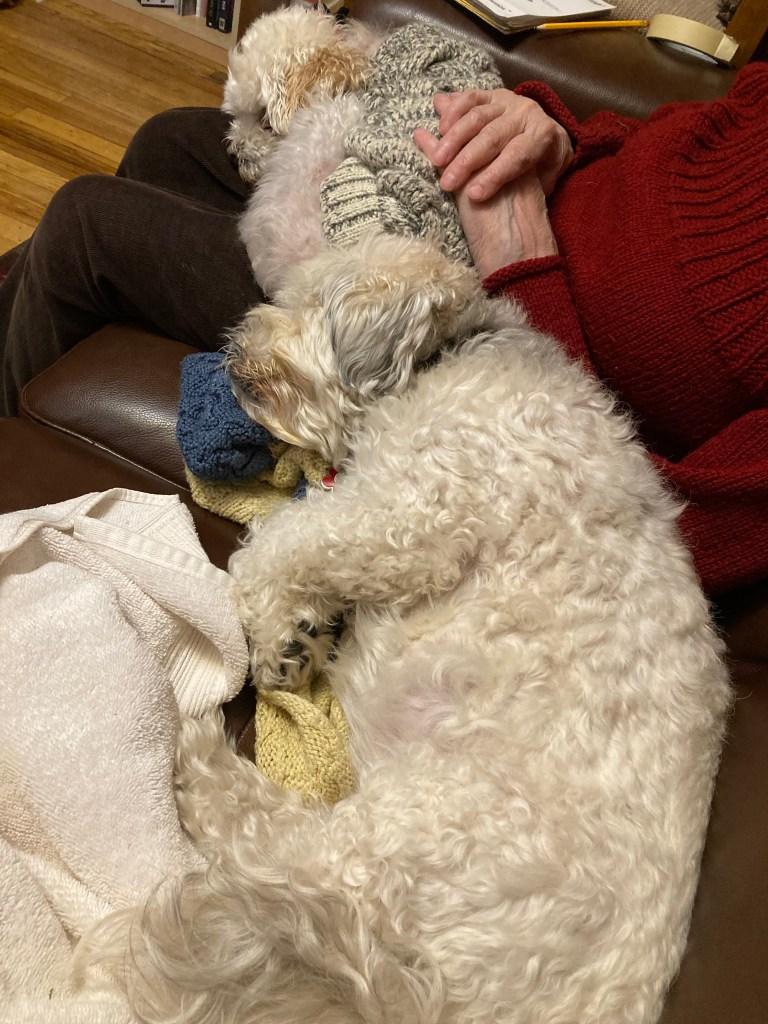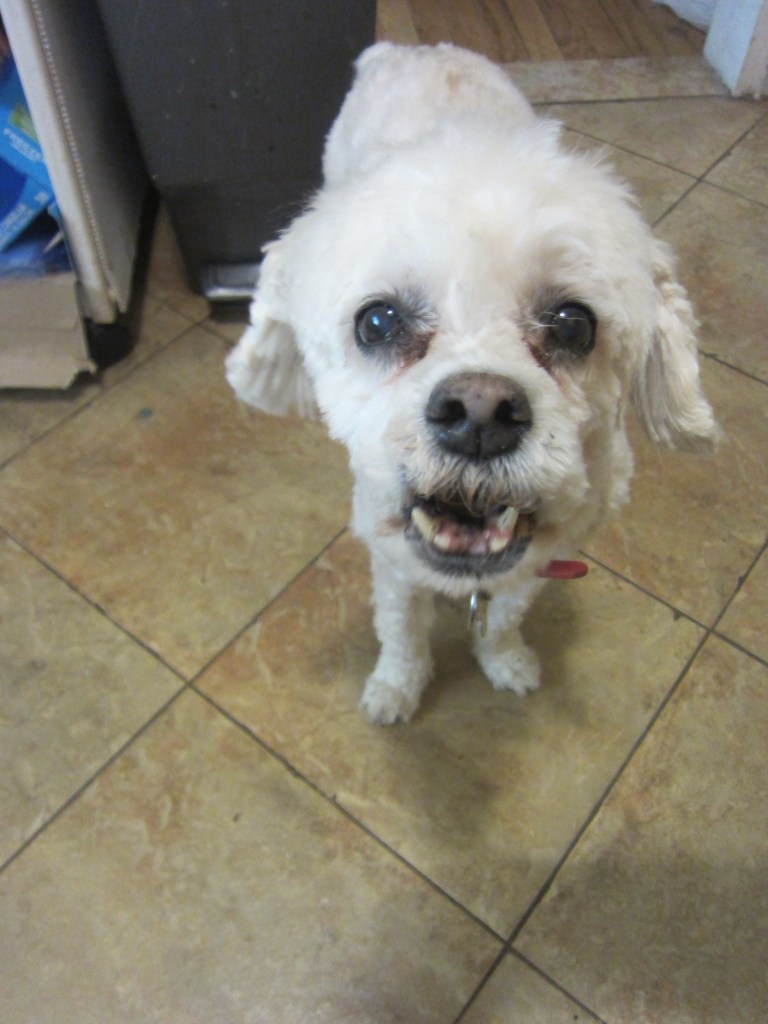Early in the school year I went searching for information on ADHD and Autism, to try to understand behaviors I was seeing in some of my students at synagogue school. I didn’t learn much about either diagnosis in my three and a half years in graduate school for social work, or even during the two years prior to that, when I was studying psychology in hopes of applying to a doctoral program in clinical psychology. And I certainly didn’t learn much about how to teach kids with those learning differences.
I watched a lot of short, explanatory videos on ADHD and Autism that left too much unexplained and undescribed, and then I watched a lot of videos made by adults with ADHD and Autism who could describe the neurological differences they experienced, but still couldn’t give me, as a teacher, a clear idea of how to be helpful. And then I watched a bunch of videos about the blurry lines between ADHD, Autism, and trauma responses in children and adults, many of which validated my own experience of the mental health field, which is that there’s a lot we don’t know, but there are a lot of people who like to sound certain anyway, which is just annoying.
But while I was looking into ADHD and Autism for my students, I kept finding videos that resonated with me, and I realized that I’ve been hitting a wall in therapy, in large part because the plans I had for my life have been derailed by my health issues and that has left even my therapist stymied as to how to help me. So even though the ADHD and Autism videos weren’t panning out, I thought I would keep looking though YouTube to see if I could find some ideas to try out in therapy, or even just ways to help me accept where I’m at and find some peace.

I took a deep dive into the big names in Psychology, and especially in Trauma and Sensorimotor therapies and Attachment, thinking I must have missed some important ideas along the way that could have healed me by now, but I realized quickly that I’d heard all of it, and studied it, and parsed it for all of the helpful morsels of wisdom long ago. In almost thirty years of therapy, I realized, I’ve learned at least a doctorate’s worth of information/wisdom on the impact of trauma, even though I struggle to feel confident in what I know.
But then I found a relatively young therapist/social worker named Patrick Teahan who had made a lot of videos about dealing with the impacts of a traumatic childhood in really down to earth, practical ways. And while he wasn’t telling me things that were new to me in theory, he had a way of talking, especially when sharing his own stories, that was validating and made me feel less alone. He shares a lot of concrete examples about what it feels like to have your sense of reality constantly challenged, and he’s able to describe situations and put things into words that often remain blurry for me.
He can be a bit verbose at times, though not in an academic way, more like if a friend were telling you a story and kept interrupting himself to tell you about another aspect of the story, and then getting back to the main idea only to go off on another tangent. I decided to take notes when I watched his videos, to help me follow the main through lines of what he was saying, and to give myself permission to take the videos more seriously, and to take my time with them, because the real value I was getting was a sense of his basic kindness as he worked to remove the shame that comes with a difficult childhood and from the lifelong dysregulation it can cause.
He works in a form of therapy I’d never heard of, called the Relationship Recovery Program, and I have no idea how commonly it’s practiced or where it’s practiced, but I like the way he seems to respect each person’s life story, and I like that he doesn’t profess to have all of the answers. Most of all I like his sense of hope, that with time and effort people can come out of therapy feeling better and seeing things more clearly than before.
I haven’t watched all of his videos, but I have a long list of the ones I want to watch carefully, taking notes and absorbing the material without overwhelming myself too much. And whenever I watch one of his videos, YouTube recommends a handful of other videos on similar topics, with other therapists, and even if I don’t watch them right away, there’s this reassuring sense that they’ll be there for me, some day, when I need them.
The biggest gift from all of this video research, though, has been the reminder of how much I already know, about myself, and my students, and how valuable it is to just be a witness to what others are going through and to validate their experiences instead of evaluating or diagnosing them. Attention and kindness really can help people heal. I just have to keep reminding myself of that.
If you haven’t had a chance yet, please check out my Young Adult novel, Yeshiva Girl, on Amazon. And if you feel called to write a review of the book, on Amazon, or anywhere else, I’d be honored.
Yeshiva Girl is about a Jewish teenager on Long Island, named Isabel, though her father calls her Jezebel. Her father has been accused of inappropriate sexual behavior with one of his students, which he denies, but Izzy implicitly believes it’s true. As a result of his problems, her father sends her to a co-ed Orthodox yeshiva for tenth grade, out of the blue, and Izzy and her mother can’t figure out how to prevent it. At Yeshiva, though, Izzy finds that religious people are much more complicated than she had expected. Some, like her father, may use religion as a place to hide, but others search for and find comfort, and community, and even enlightenment. The question is, what will Izzy find?


Sounds worthy of looking into! Think I will. Hugs🐾
Hugs.
This is a coincidence. Just before clicking on your post, I had just finished watching a video about indecision on Patrick Teahan’s channel. He’s very relateable and gets to the heart of trauma, etc. I don’t know if you’ve ever checked out anything by Dr. Ramani Durvasula. She specializes in personality disorders like narcissism. She has one video that contrasts ADHD with Narcissistic Personality Disorder. Another YouTuber I like is Dr. Todd Grande, a licensed therapist. He covers many mental health issues from a therapist’s point of view.
I’ll look for both of them . Thank you!
I have a close friend who is going next week to a residential treatment center for serious PTSD and other issues relating to childhood abuse.and combat service in the military. I will pass on the name you mention in this post.
Going to a residential treatment center for PTSD is a great idea, especially if they do real work instead of just a week or two for stabilisation.
The message for me out of this is that while not every offering on YouTube is beneficial, there is so much material, that with a cautionary approach, so much useful information can be gleaned.
Absolutely!
I had no idea you could find this sort of stuff on you tube. But never mind that. I think you should never discount what you already know and understand. As you say, keep reminding yourself, because I know like me and many others, you are apt to sell yourself short.
It’s so hard to trust myself and the work I’ve already done.
Agreeing with you especially your paragraph about the significance of witnessing and validating others’ experiences and the helpfulness of paying attention and being kind. For those who may be struggling, trying to overcome adversity, or trying to survive: these are underrated ways of bringing and finding relief and taking pressure off. Heck yeah Rachel for finding and sharing the good in this video research!
When we see people struggling it’s so easy to think our job is to give them advice, but just listening and offering compassion can be so much more powerful.
Well said.
Our 3 year old granddaughter has failed to develop ‘normally’, and has now been diagnosed with Autism. At least she is a very happy child, we take comfort from that.
Best wishes, Pete.
Early diagnosis is often the key to helping a child feel more accepted for who she is. Bravo!
Oh wow, Patrick sounds like a gold mine of information. Glad your research has yielded some positive aspects to explore.
Thank you!
If you have found a form of therapy you can identify with and it helps, that is terrific. I think that is then half the battle won. Good post Rachel.
Thank you!
you’re welcome
I don’t think it matters how much therapy you get if it doesn’t resonate with you, it’s not going to help. So glad you found this person and what he says speaks to you. Big high 5!
Thank you!
I so look forward to your posts. I learn something new every time. Thank you, Rachel!
Thank you so much!
So glad you found someone. It is so important to find the right therapist and therapy!
Absolutely!
I hope you truly find some peace Rachel 🤗
Thank you!
You’re welcome
I appreciate what you’ve learned and had affirmed both as a student, now a researcher, and as a client. I’m glad you’re reinforcing what you know and, I trust, its relevance to so many things, certainly your life and I hope your work. It’s good that Cookie can remind you of the value of what you’ve experienced and what you know and, naturally, who you are.
Thank you!
My son grew up with ADHD. For him visual learning was far easier than things with a lot of words. For example learning to read blueprints is a struggle for most people, but for him the visual views totally made sense so he found reading blueprints far easier than reading a bunch of written words.
That’s really helpful! Thank you!
You’re welcome.
It’s a lifelong work getting to know ourselves and others! I loved reading your words; they are intermingled with hope and kindness. Two very valuable commodities.
Thank you so much!
It is amazing how much trauma can, and many many times, does change the chemistry in the body which impacts our ability to function in the world. Coping mechanisms present in so many various ways , but I believe that these disorders are a great guide and proves how adaptable and amazing our minds/bodies are in surviving, and hopefully thriving.
Agreed!
Keep at it, Rachel. It’s heck, I know (not just saying that; my childhood was rough too). But I’m glad your still there.
Thank you so much!